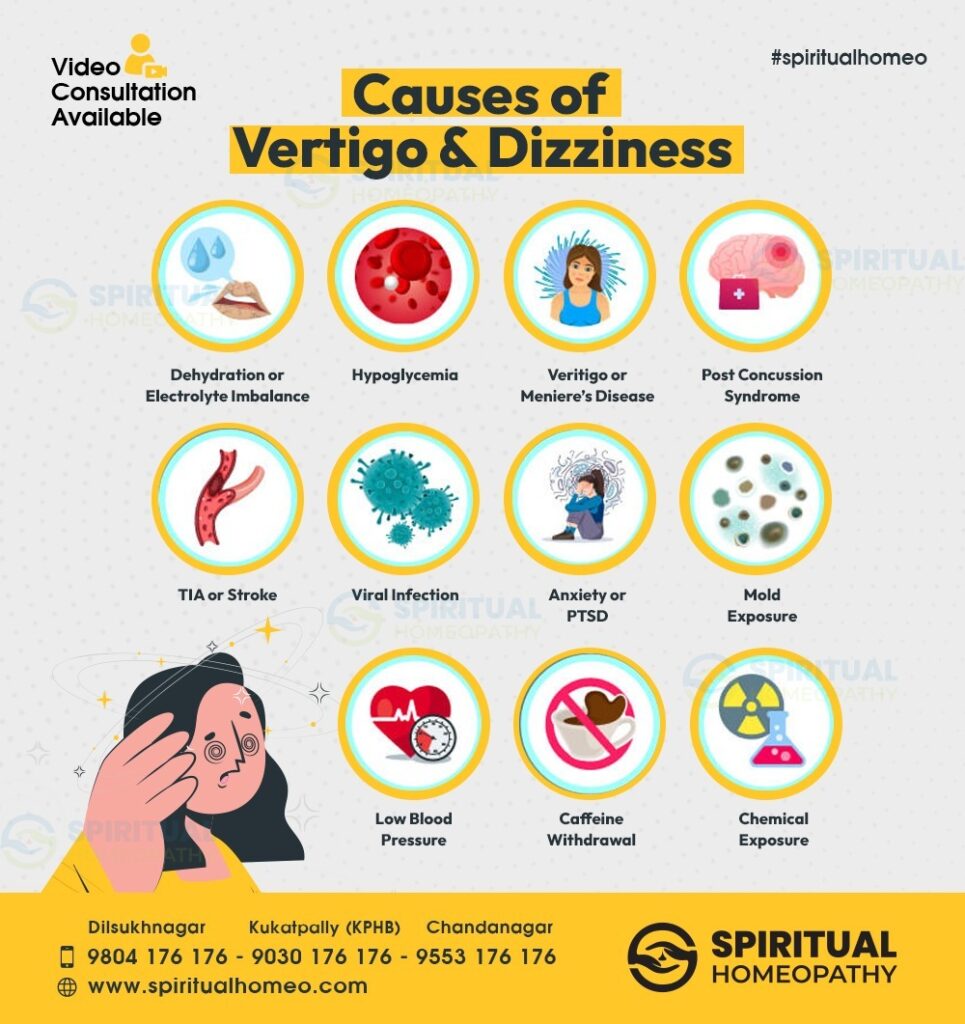Vertigo and dizziness can be caused by various factors, ranging from benign to severe. Here are some common causes:
Benign Paroxysmal Positional Vertigo (BPPV): This is the most common cause of vertigo. It occurs when small calcium particles clump up in the canals of the inner ear, affecting the sense of balance.
Vestibular Neuritis or Labyrinthitis: These conditions result from inflammation of the inner ear or the vestibular nerve, often due to viral infections. They can cause vertigo, dizziness, and sometimes hearing loss.
Meniere’s Disease: This disorder of the inner ear is characterized by episodes of vertigo, hearing loss, tinnitus (ringing in the ears), and a feeling of fullness in the affected ear. The exact cause is unknown, but it’s believed to involve fluid buildup in the inner ear.
Migraine-Associated Vertigo (MAV): Some people experience vertigo as a part of migraine attacks. This type of vertigo may occur with or without a headache.
Head Injury: Trauma to the head or neck can damage the inner ear or the vestibular nerve, leading to vertigo and dizziness.
Medications: Certain medications can cause vertigo and dizziness as side effects. These include some antibiotics, anticonvulsants, antidepressants, and drugs that affect blood pressure.
Anxiety Disorders: Conditions like panic attacks and generalized anxiety disorder can cause symptoms of dizziness or lightheadedness.
Dehydration or Low Blood Sugar: Inadequate fluid intake or low blood sugar levels can lead to dizziness.
Orthostatic Hypotension: This condition occurs when blood pressure drops suddenly upon standing up from a sitting or lying position, leading to dizziness or lightheadedness.
Stroke or Transient Ischemic Attack (TIA): A disruption of blood flow to the brain can cause sudden onset of vertigo along with other neurological symptoms.
Tumors: Rarely, tumors affecting the inner ear or brain can cause vertigo and dizziness.
Motion Sickness: Sensitivity to motion, such as in cars, boats, or airplanes, can lead to feelings of vertigo and dizziness.
If you’re experiencing frequent or severe episodes of vertigo or dizziness, it’s important to consult a healthcare professional for proper diagnosis and treatment.




